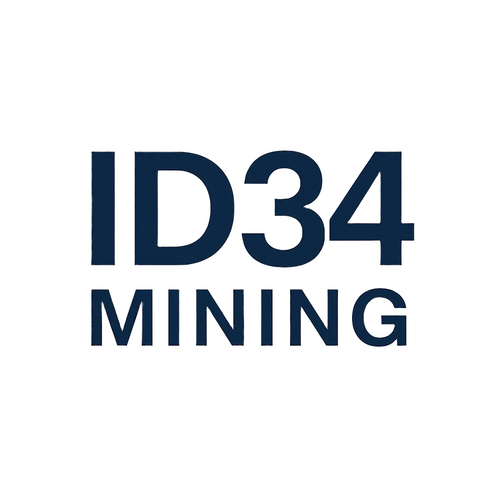In today’s volatile economic climate, holding significant cash reserves can lead to substantial financial losses due to inflation.
Michael Saylor, CEO of MicroStrategy, presents a compelling case for why Bitcoin represents a high quality collateral: a zero-counterparty treasury asset that offers both institutions and individuals a robust defense against wealth erosion.
Here’s a detailed exploration of Saylor’s perspective and its implications for your financial strategy.
The Defective Nature of Cash Holdings
1. Inflation and Devaluation
- Inflation Impact:
"Cash is a liability," Saylor famously states, highlighting the inherent risk of holding large cash reserves. The relentless force of inflation erodes the purchasing power of fiat currencies like the U.S. dollar, causing significant losses over time.
Saylor's view is clear: "If you are sitting on cash, you are a sitting duck."
- Currency Devaluation:
Government policies, such as quantitative easing and excessive money printing, exacerbate this issue. As Saylor puts it, "Inflation is the vector that’s going to push people out of cash and into assets."
- No Second Best:
Even other cryptocurrencies can experience inflation. For example, some people consider Ripple's release of XRP into the market as a form of inflation. This "inflation" of the circulating supply of XRP would, for example, make XRP need about a $4 price per coin to reach its all time market capitalization while the price was at its all time high. Other cryptos have their own different types of systems of inflation or deflation built in.
2. Opportunity Cost
- Saylor warns of the high opportunity cost associated with holding cash, stating, "If you keep all your money in cash, you're going to lose 15% of it every year."
By not investing in appreciating assets like Bitcoin, institutions and individuals miss out on substantial potential gains and expose themselves to record inflation and stagflation.
Bitcoin as a Treasury Asset
Michael Saylor’s strategic shift in MicroStrategy’s treasury management underscores the viability of Bitcoin as a superior alternative to cash. Here’s a closer look at why Bitcoin is considered a treasury asset:
1. Preservation of Wealth
- Fixed Supply:
Bitcoin’s fixed supply of 21 million coins is central to its value proposition. "Bitcoin is the apex property of the human race," Saylor asserts, emphasizing its scarcity and resistance to inflation.
This scarcity makes Bitcoin a reliable store of value in an era where fiat currencies are consistently devalued.
- Store of Value:
Saylor likens Bitcoin to "digital gold," pointing out that "Bitcoin is a swarm of cyber hornets serving the goddess of wisdom, feeding on the fire of truth, exponentially growing ever smarter, faster, and stronger behind a wall of encrypted energy."
This powerful imagery reflects Bitcoin’s decentralized nature and its emerging status as a trusted store of value.
2. Appreciation Potential
- Historical Performance:
"Bitcoin is the first engineered monetary network in the history of the world," says Saylor, pointing to its unprecedented appreciation over the past decade. Despite its volatility, Saylor sees Bitcoin as a long-term play, stating, "You can't stop Bitcoin; you can't turn it off. It is the hardest money ever created."
- Institutional Adoption:
The growing acceptance of Bitcoin by institutions further validates its potential as a treasury asset. Saylor is adamant: "Bitcoin is a bank in cyberspace, run by incorruptible software, offering a global, affordable, simple, and secure savings account to billions of people that don't have the option or desire to run their own hedge fund."
3. Strategic Acquisition
- Saylor’s approach to Bitcoin acquisition is strategic and forward-thinking: "The best time to buy Bitcoin is yesterday. The second-best time is today." He advocates for accumulating Bitcoin strategically, particularly during market dips, to optimize entry points and maximize holdings.
Mitigating Risks and Maximizing Returns
1. Hedging Against Inflation
- Saylor underscores Bitcoin’s role in safeguarding wealth: "Bitcoin is the most efficient way to convert energy into prosperity." By diversifying into Bitcoin, institutions and individuals can protect their purchasing power and ensure long-term financial stability.
2. Leveraging Bitcoin’s Growth
- Adopting a long-term holding strategy is central to Saylor’s philosophy: "Bitcoin is a long-term asset that, when held for more than four years, cannot be stopped from producing value." This approach allows investors to capitalize on Bitcoin’s growth potential while minimizing the impact of short-term volatility.
3. Institutional Framework
- Saylor emphasizes the importance of regulatory compliance and best practices: "We need to ensure that Bitcoin adoption is done in a way that supports institutional integrity and global security." This approach mitigates risks associated with Bitcoin investments and aligns with broader financial governance standards.
The Power of Bitcoin in Wealth Preservation
Michael Saylor’s insights extend beyond financial strategy; they delve into the philosophical and practical implications of wealth preservation in a modern economy.
As he puts it, "If you don't have Bitcoin, you don't have a digital future." This statement highlights the urgency for institutions to reconsider their treasury strategies in favor of more resilient assets like Bitcoin.
Saylor’s strategy provides a solution for safeguarding retirement funds and long-term wealth. He warns, "If you have $100 million and it’s sitting in cash, you’re losing $15 million a year to inflation, and you’re being driven insane by the fact that the S&P is up 30% a year and Bitcoin is up 300% a year."
Give Your Cash a Better Future with ID34 Mining
At ID34 Mining, we recognize the transformative potential of Bitcoin as a zero-counterparty and disinflationary treasury asset. By integrating Bitcoin into your financial strategy, you can protect against inflation, preserve wealth, and position yourself for substantial growth.
Take action today:
See an example of how we can help you by clicking here.

